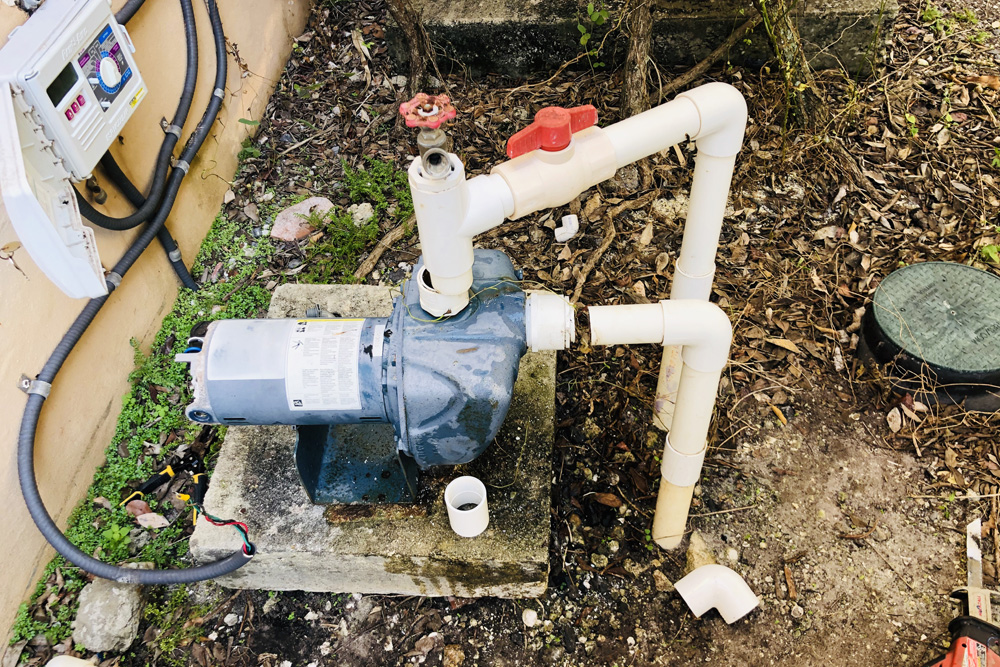Aggressive Water Treatment Actions: Buying Long-Term Water Top Quality
Aggressive Water Treatment Actions: Buying Long-Term Water Top Quality
Blog Article
Comprehending the Secret Elements of Effective Water Filtration Systems

Importance of Water Filtration Systems
Water purification systems play a critical role in making certain accessibility to risk-free and tidy drinking water by efficiently removing pollutants and pollutants. These systems are necessary in resolving the expanding worries over water high quality and the potential health threats related to taking in contaminated water. By utilizing numerous purification mechanisms such as reverse osmosis, triggered carbon, and UV sanitation, water filtering systems can efficiently remove dangerous compounds like germs, viruses, heavy metals, and chemicals from the water supply.
In addition, water purification systems assist to boost the taste and smell of water by removing chlorine, sediments, and other pollutants that can influence its top quality. Water Treatment. This improvement in water high quality not only makes it more palatable but also urges individuals to consume a sufficient quantity of water daily, advertising better hydration and total health
Sorts Of Purification Parts

Physical filters are designed to literally strain out contaminations from the water. These filters can be constructed from materials like ceramic, carbon, and even sand, and they function by trapping bits larger than the filter's pores as water passes via.
Chemical filters utilize various chemical procedures to get rid of pollutants from the water. Examples consist of activated carbon filters, which adsorb impurities, and turn around osmosis membranes, which make use of pressure to separate impurities from the water.
Organic filters utilize living microorganisms like algae or microorganisms to break down organic issue and contaminants in the water. These filters are commonly utilized in wastewater treatment plants or all-natural water purification systems.
Understanding the different kinds of filtering components is critical for picking the most appropriate water purification system for specific filtration requirements.
Feature of Sediment Filters
Debris filters play a crucial role in water filtration systems by properly catching strong fragments suspended in the water. These filters are normally the initial line of defense in a filtering system, removing bigger bits such as sand, silt, dust, and corrosion before the water moves through finer purification stages. By capturing these sediments, the filters avoid them from getting to downstream elements, therefore prolonging the life-span and effectiveness of the entire system.
The function of debris filters is crucial in maintaining water top quality and protecting delicate devices from damages triggered by debris. In addition, by eliminating visible fragments, sediment filters enhance the quality and taste of the water. Consistently replacing or cleaning sediment filters is necessary to make certain ideal performance. Disregarding this maintenance can lead to obstructing, decreased water flow, and jeopardized filtration performance. Generally, sediment filters are essential parts that add dramatically to the performance of water filtering systems.
Role of Turned On Carbon Filters
Playing an essential role in water filtering systems, triggered carbon filters are critical in eliminating pollutants and pollutants from the water supply. As water passes with the filter, the triggered carbon holds and draws in onto the pollutants, guaranteeing that the water that comes out on the other side is cleaner and safer for consumption.
Triggered carbon filters are highly effective at improving the taste and smell of water by minimizing chemicals that can impact its quality. Due to their convenience and integrity, triggered carbon filters are a key part in making sure that water is purified to the highest possible requirements before getting to consumers.
Understanding Reverse Osmosis Equipments
Reverse osmosis systems are innovative water filtering systems that use an advanced process to get rid of pollutants and impurities from alcohol consumption water. These systems work by using pressure to the water, compeling it via a semi-permeable membrane. This membrane acts as an obstacle, allowing just distilled water molecules this article to pass through, while blocking bigger molecules such as minerals, chemicals, and various other pollutants. Consequently, the water that appears beyond is considerably cleaner and safer for intake.
One secret advantage of reverse osmosis systems is their capacity to get rid of a discover this large range of impurities, consisting of heavy steels, liquified infections, bacteria, and solids. This makes them extremely reliable in improving the general top quality and safety and security of drinking water. Furthermore, reverse osmosis systems are reasonably low-maintenance and can be mounted under the sink or in a central filtration system, offering practical access to tidy water throughout the house. Overall, comprehending how reverse osmosis systems work can aid people make educated choices regarding their water purification demands.
Conclusion
In verdict, efficient water purification systems are critical for making certain clean and secure drinking water. By recognizing the function and duty of each element, people can make educated choices when selecting a water filtration system.
Water filtering systems play a vital role in ensuring access to tidy and safe drinking water by effectively eliminating contaminants and pollutants. By making use of various filtering devices such as reverse osmosis, activated carbon, and UV sanitation, water purification systems can effectively remove hazardous compounds like microorganisms, viruses, heavy steels, and chemicals from the water supply.
Sediment filters play an essential duty in water filtration systems by successfully recording strong particles put on hold in the water (Water Filtration Systems).Playing a critical role in water purification systems, activated carbon filters are critical in getting rid more tips here of pollutants and impurities from the water supply.Reverse osmosis systems are sophisticated water filtration systems that use a sophisticated process to get rid of pollutants and impurities from drinking water
Report this page